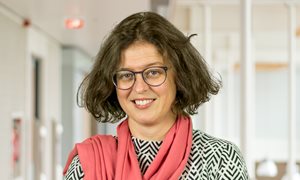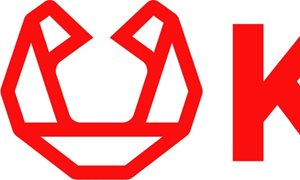22 February 2018
b) Theater or cinema? : Cinema
c) Dine out or dine in? : Dine out
d) Ferrari or Fiat? : Fiat
e) Shopaholic or chocoholic? : Chocoholic
f) Culture or Nature : Nature
 My name is Minke Smits and I am from The Netherlands. Since January 2017 I am working as a PhD candidate at the department of Urology-Oncology focusing on molecular diagnostics and immunotherapy in prostate cancer.
My name is Minke Smits and I am from The Netherlands. Since January 2017 I am working as a PhD candidate at the department of Urology-Oncology focusing on molecular diagnostics and immunotherapy in prostate cancer.
When you were a kid what did you want to be when you grew up? Can you tell us something about your child years.
Since I remember I wanted to work in a hospital; first as a nurse at neonatology, then as a paediatrician. As strange it may sound, I liked to be in the hospital as a child, I found it very interesting to see all those people working in white, rushing with beds through the building. During studying at the university I was intrigued by the mysterious process of the development and growth of cancer and I decided I wanted to be a medical oncologist.What was your previous academic training, where did you study and why that study?
I studied Medicine at the Radboud University from 2016 until 2013. I wanted to be a doctor since I was young, so Medicine was for me the only option.The RIMLS motto is “Today’s molecules for tomorrow’s medicine”. What does this mean for you?
Research in the development of biomarkers is very important in many diseases; besides using them in diagnoses and prognosis, they can also be used as predictive markers or targets for therapy. During the last decade many targets have been investigated in cancer and new treatments have been developed, providing a better quality and quantity of life in many patients. Immunology seems to be very important in the development of cancer and it’s resistance to treatment. I believe much more research is necessary to provide a more personalized treatment in patients with cancer.Who is your great example as scientists? And please give a motivation why.
My own co-promoter Niven Mehra is a very enthusiastic oncologist, researcher and mentor. He cares for his patients, is very active in thinking about new research ideas and helps me in my research wherever needed.Which research discovery that you have made has made you most proud?
We have been treating a small cohort of prostate cancer with microsatellite instability with anti-PD1 inhibitors since the last ten months and saw very encouraging responses. Although a small cohort of patients, it has never been giving in a cohort of prostate cancer patients and the responses are amazing, especially since most of these patients already received all standard treatments and no other treatment was available anymore.Given unlimited finance what experiment would you perform?
Given unlimited finance and time I would like to screen all metastatic prostate cancer patients in the Netherlands for MSI, treat patients with MSI with checkpoint inhibitors and prospectively collect fresh frozen tissue and blood for all different kind of analyses to find out which markers, mutations or other influences in the tumour microenvironment are important for the response to checkpoint inhibitors in these cohort of patients.What does your working area (desk, office) look like and what does it say about you (or your research)?
There are many papers and ‘to do lists’ on my desk. It does seem unorganized, however this works for me. I do think I am organized, especially due to these ‘to do lists’.Nominate a colleague to be in the spotlight and what would you like to ask him or her?
I would like to nominate Harm Westdorp, fellow PhD candidate, working on DC vaccinations. What do you think the role of dendritic cell vaccinations will be in cancer in general (not only melanoma or prostate cancer)?What type of person are you, quick insights:
a) Mac or PC? : PCb) Theater or cinema? : Cinema
c) Dine out or dine in? : Dine out
d) Ferrari or Fiat? : Fiat
e) Shopaholic or chocoholic? : Chocoholic
f) Culture or Nature : Nature
Related news items

Fewer cancer diagnoses during the COVID-19 epidemic in the Netherlands
7 May 2020 In a commentary in Lancet Oncology Iris Nagtegaal, theme Tumors of the digestive tract, published, together with Thijs Merkx, as head of the IKNL, the latest data that illustrate the impact of the pandemic on the detection of new cancer patients. go to page
Awarded KWF grants for Radboudumc researchers
18 December 2019 KWF is investing 2.7 million euros in five different studies at Radboudumc. The awards are part of the new round of funding by DCS, in which over 34 million euros will be granted to Dutch cancer research. We congratulate our researchers with this funding and wish them success with their great work. go to page
Lieneke Steeghs about the PATH project: Predictive Analysis for Therapy
22 March 2019 Read here the article 'PATH makes predictive molecular diagnostics in cancer unambiguous', of Lieneke Steeghs, theme Tumors of the digestive tract, that was published on the website of ZonMw. go to page
Valentine’s day spectacle at the Radboud Research Rounds
21 February 2019 This year’s Valentine’s day in the Radboudumc was focused on the RRR of the Tumors of the Digestive Tract. In the biannual Paper Award session the big prize went to Daniel Garza from the Center for Molecular and Biomolecular Informatics, for his paper on “the environmental metabolome”. go to page
A personal touch of Iris Nagtegaal
10 February 2019 In order to promote interaction amongst colleagues within RIMLS, we have a ‘personal touch’ series setting employees in the spotlight. A light-hearted manner to learn about the colleagues you know and those you don’t! This week: Iris Nagtegaal. go to page